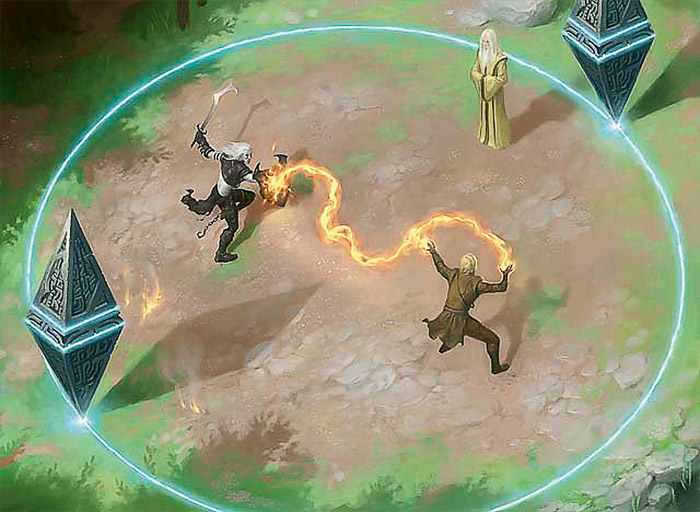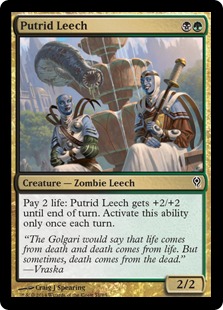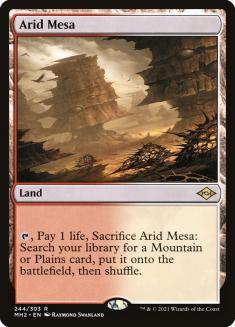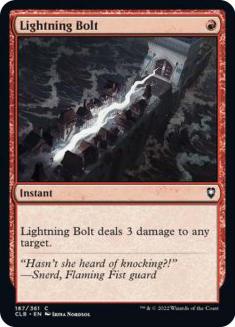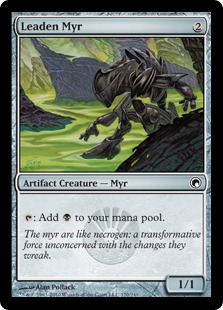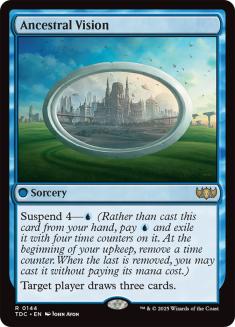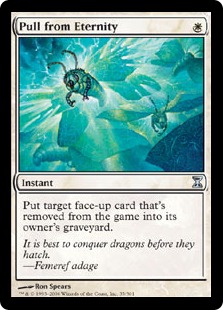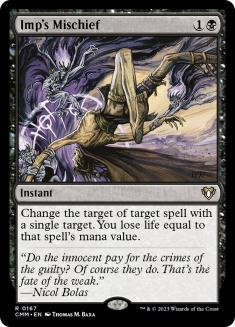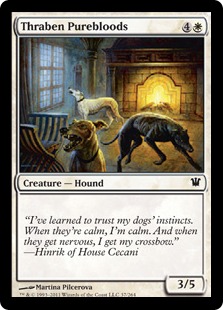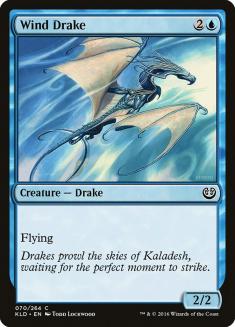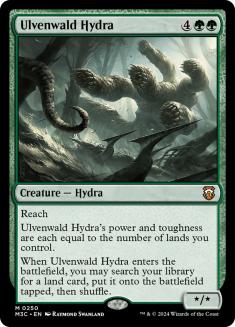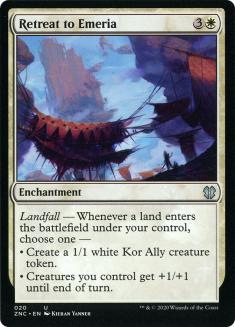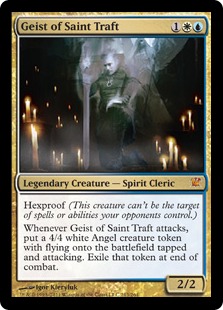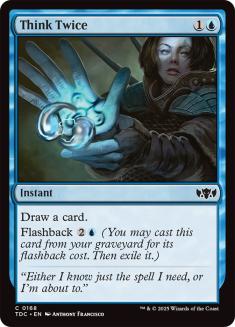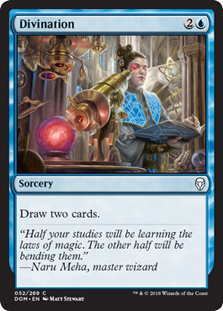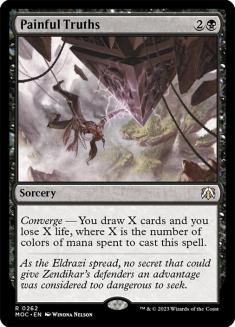A while ago, I did a video where I discussed the best Magic players in history. When I was talking about some of these players, I listed aspects I thought they excelled at. This sparked a lot of discussion and people were interested to know more about it — sure, I could say a player was the best at a particular thing, but why were they the best? What was it that made them even better than the average pro in this specific skill?
This got me thinking — who do I think are the best players in the world at each particular thing? Who are the people that stand out in specific fields, even compared to their best-in-history peers, and what made them stand out in this way?
In today’s article, I will list some players that I believe are the best at a single particular skill in Magic. Hopefully we can then identify why they are the best at what they do, and eventually use that knowledge to become better players ourselves.
Before I start, some caveats:
- Every player on this list is one of the best players in the history of the game and as a result is going to be way above average at all aspects of the game. I’m highlighting what I believe they’re better at even compared to their peers, but this doesn’t mean they’re bad at anything — if I say someone is “the best at playing combo,” this doesn’t mean they also aren’t great aggro or control players.
- The goal of this article is to learn lessons from these particularly great players and not to rank everybody. It’s natural that I learn the most from the players I’m closest to, and I don’t know every professional player intimately, so I don’t know for sure that these people are actually the best in the world at the things I’m mentioning — they’re just the ones I perceived to be the best at each particular skill. It’s definitely possible that someone somewhere is better at a particular thing than the person I chose, but this shouldn’t detract from the point of the article.
- This is just my perception of their abilities — it’s possible these players themselves don’t actually agree with my evaluation; they never chimed in for the article.
With that said, let’s get started!
Luis Scott-Vargas: Best at playing against less experienced people

From this description, you might be wondering if there’s any difference between being good at playing against good players and being good at playing against bad players. The answer is that yes, there is!
When you play against a very good player, to convince them you have or don’t have something, you need to sell them a different reality — you do this by making plays that would only make sense in that reality. They know that the reality you’re representing is possible so they will recognize your plays as matching that reality.
When you play against someone who’s worse, they might not even be aware that this reality is possible, or they might know that it is but fail to see how your plays are representative of that reality. So, you have to help them, and this is what Luis is the best at.
One situation that illustrates this for me very well is one of Luis’s matches at Pro Tour San Diego 2010 — the one where he went 16-0 in the Swiss with a Naya Midrange deck. Luis was playing against a less experienced opponent who had two Putrid Leeches on the battlefield. Then, on his turn, Luis did something and was going to pass with an Arid Mesa up. Instead, he cracked the Arid Mesa and got a Mountain. His opponent, seeing an untapped Mountain, then didn’t pump his Putrid Leeches to play around Lightning Bolt (which Luis didn’t have) and that ended up being the difference between winning and losing that game for him.
Now, if you’re playing versus a better player, this is not something you’re going to do — the Arid Mesa already represents Lightning Bolt as much as the Mountain does. If anything, sacrificing it is a tell in the other direction. I would never make this play because my brain is configured to not give away information that I don’t have to. But Luis felt that his opponent might not make the connection between Arid Mesa and Lightning Bolt (they might not even understand that Luis is playing red at this point) and definitely would make the connection between Mountain and Lightning Bolt, so he cracked it to make it obvious to the opponent what he could have. Is that what actually happened? We’ll never know if the opponent would have refrained from pumping in the face of an Arid Mesa, but this is the kind of play that I’m talking about.
Another example — Luis was once playing a Sealed Deck GP and he led with a mana Myr (say, a Leaden Myr). He saw that his opponent considered killing the Myr on his turn, but ultimately opted not to do it. This told Luis that his opponent likely had a good removal spell (since they chose not to use it, whereas a bad removal spell they would probably have used immediately). Then, what did Luis do? He purposely didn’t play a land on his turn. This was the trigger the opponent was waiting for and they untapped and cast the Arrest they were holding on the Leaden Myr — which was exactly what Luis wanted, since he had plenty of lands and didn’t need the Myr for anything. By picking up on his opponent’s indecision, he was able to give just the nudge his opponent needed to make the play that, by all accounts, was not the best play.
Yet another example came when we were testing for a Time Spiral Block Constructed tournament and Luis was playing against Paul Cheon. I’ve written about this scenario before, so it’s possible you’re familiar with it, but it illustrates my point pretty well so I’m going to use it again. The game was a Mystical Teachings mirror and Paul was tapped out on Luis’s turn with a suspended Ancestral Vision that was going off the following turn. Luis passed the turn and then, on Paul’s upkeep, cast Pull from Eternity on the Ancestral Vision. Paul had a counterspell in hand.
Paul thought out loud for a while. “Why would you do this on my upkeep and give me the chance to counter it? I was tapped out last turn. You could just have done it on your turn. What’s going on? You must have Imp’s Mischief, so you’re trying to bait the counterspell on the Pull so you can resolve it instead.” As a result, Paul did not counter the Pull from Eternity. In the end, Luis did have the Imp’s Mischief.
Now, in this scenario, Luis’s play actually backfired — not only did he accomplish the same thing as just casting the Pull on his turn but he also clued Paul in on the fact that he had Imp’s Mischief in hand, so Paul got to play around it for the rest of the game. However, against a weaker opponent who is unlikely to be able to figure out what Luis is up to, it gives them the chance to mess up. This is what he’s the best at — creating scenarios where the opponent can mess up.
So, what can we learn from that? We can learn that not every player is the same and the way you play against different players should also be different. Against a good player, every piece of information you give them can and will be used against you, but against a less experienced player, it can pay off to give them a hand in figuring out the scenario you’re trying to represent.
As a final example, this time one that happened with me, I was once playing an FNM a long time ago and I wanted to cast Cryptic Command to tap my opponent’s creatures. They had two Hellspark Elementals in the graveyard, so I was hoping they would unearth them that turn (since I was going to use Cryptic as a Fog anyway). So, what did I do? I looked at their graveyard and spent some time thinking about it and crunching numbers, to remind them that they were there and were possible plays. This could backfire (I could be reminding them of the card for a future turn), but in the actual match they unearthed both the Elementals and tried to attack. Was it because I looked at their graveyard? I guess we’ll never know.
Shuhei Nakamura — Best at playing with bad cards

Every good player knows how to play with the good cards, but playing with the bad ones is an art and Shuhei Nakamura is the best person I’ve ever seen at that. Now, why is this even considered an ability? Because of Limited. In Constructed, if you ever choose to play with the bad cards, then that’s on you (Ornithopter, hello), but in Limited you often have to play with suboptimal cards and it’s up to you to get the most mileage out of them.
This is not to say that Shuhei always has bad decks or anything — he’s a very good Limited player — but when he does have bad decks, he wins more than most people would with them. I remember when I played Team GPs with Shuhei, we’d always give him the worst deck of the three, and after twelve rounds, he’d be 10-2 carrying the team.
So, what does Shuhei do that allows him to do better with worse cards than other professional players?
I would say that the main thing is that Shuhei has a lot of patience. He knows when his cards aren’t as good as the opponent’s, so he needs to extract maximum value out of them and he has the patience to wait for that moment. When you play against Shuhei, he’ll often have many cards in hand and then whenever you think it’s safe to go for it, he’ll one-up you.
A lot of the time, we play around one spell — say, one pump spell — so we think that, if we have an answer to that, then the coast is clear. Surely if the opponent had more than one pump spell they would have cast one at an earlier turn, that they would have tried to use it to gain an advantage already. With Shuhei, you’ll attack, he’ll cast a pump spell, you’ll reveal your perfect counter in triumph, and then you’ll find out that his other two cards were also pump spells which wreck you in combat.
Basically, when an opponent refuses to take a trade that appears advantageous, we assume they don’t have the card in question. For Shuhei, it’s not that he doesn’t have it, he’s just waiting for a moment when he can get even more mileage out of it. He recognizes when just getting an advantage won’t get the job done and instead he crafts this perfect scenario where his combination of cards will break the game wide open and that’s when he pounces and uses them all. His patience lures you into a false sense of security because, if you had the spells he had, you’d have cast them long ago, so you reason that he can’t have them, yet he does. Playing against Shuhei in Limited leads to asking yourself “How does he always have it?” without realizing that the reason other players don’t always have it is because they waste their cards in moments that aren’t perfect.
Shuhei is also know for playing creatures that are just piles of stats — in our drafts, he played enough 3/5s for five (such as Thraben Purebloods) across various formats that we started calling them “Shuheis” — “How many Shuheis in your deck?” “Should I play Shuhei here?” and so on. I think part of the reason he has more success with this type of card is that they facilitate the playstyle that I was describing earlier — if you’re trying to out-trick your opponent, having a 3/5 blocker is a good invitation for them to use their tricks — but more importantly it’s just recognizing that, if you don’t have bombs, just having bigger creatures than your opponent is a potential avenue to winning the game. If you manage to answer their bomb and then they’re left with a bunch of 2/2s and 3/3s against your 3/5s and 6/6s, you’re going to win even if your cards are theoretically worse. Shuhei was also a fan of random flyers such as Wind Drake, which let him kill the opponent while the 3/5s hold down the fort.
So, the big lessons here are twofold. First, you should recognize when you need to get a small advantage from a card and when you need to get a big one. A two-for-one might look good when you get it, but it’s useless if you needed it to be a four-for-one to win the game. The second is that in Limited, and especially in Sealed, just playing piles of stats is a viable strategy when other things are going wrong and you should likely consider that more.
Brad Nelson — Best at picking a deck for an established metagame

Brad, historically, does very well in tournaments that have an established metagame (which isn’t to say he doesn’t do well in other tournaments, just that he does particularly well in those). His ability to predict the field and choose the right deck for each tournament is often cited as a reason he does so well in those, and I think this is correct. If we’re playing an entirely new format then all bets are off, but if we’re playing a format that has had several weeks worth of results feeding into it, you can always expect Brad to be playing either the best choice or at least one of the best choices.
As an example, we can take the two consecutive GPs that Brad Top 8’ed in 2017 alongside his teammates. In the first one, GP Minneapolis, both Brad and his brother Corey Baumeister Top 8’ed the tournament with a Golgari Constrictor deck. Then at GP Denver, the very next tournament of the same format, Brad and Corey Top 8’ed again (alongside their teammate Brian Braun-Duin) with Temur Energy! So, even though the format had remained the same, they were able to identify the perfect deck for how the metagame would react to their previous success.
So, what does Brad have that allows him to do this? First, there’s an understanding of how each deck in the format operates. You can be a person that just plays one deck and tunes that deck to the best of your abilities and then you’re going to have a great deck and you’re going to understand how that deck operates against everything, but this will not be enough to create a picture of how the metagame is going to evolve in your head. So, for example, if you play Mono-Red Aggro every day for a year, you’re going to be an expert in all things considering Mono-Red Aggro, but you will not truly know what happens in the “Cycling versus Sultai Ramp (Yorion)” matchup or the “Dimir Rogues versus Naya Adventures” matchup, without which you can’t figure out where the metagame is going. If you’re going to play Mono-Red regardless then maybe it doesn’t matter, but locking in your deck a year before an event does not seem like a recipe for success to me.
Obviously you’re not always going to be able to test all the matchups — in fact, you very rarely will be able to do that by yourself. I would recommend, however, at least playing all the top decks a little bit, so you get a good sense of their strengths and weaknesses. Nowadays we also have ample tournament data and charts available. As I mentioned in an article a couple of weeks ago, they’re not the most reliable, but they can be good proxies if you simply don’t have time to do the work and you should not be afraid to use them, albeit with a grain of salt sometimes.
Second, there’s correctly guessing where the metagame will be and whom you have to beat. As a general rule, the field will play Deck A and the best players will play the deck that beats Deck A, so you’re going to have to go through both decks if you want to find your way to the top — if you want to win a tournament, it’s not just about beating the best deck but also about beating whatever beats the best deck.
As an example (which Brad himself provided — thanks Brad!), we have GP Omaha, which Brad won.
Creatures (8)
Planeswalkers (2)
Lands (23)
Spells (27)

The decklist itself is not so different from the stock list, but the real genius of this deck is the sideboard — Brad had a midrange package of Ulvenwald Hydras and Tireless Trackers that he could sideboard in against the Golgari Constrictor decks playing Dispossess. The caveat? That was not an established deck at the time. Brad just knew the other pros would play this deck because it made sense to do so in this field (they did), and he knew he would have to beat them if he wanted to win the tournament (he did), so he managed to construct a sideboard plan that was good versus a deck that wasn’t even a known factor at the point.
Third, there’s a willingness to follow through with his conclusions that I don’t think many other professional players have. Simply put, giving up on a matchup is very scary, so we tend to hedge more both in our deck selection and in our builds of each deck, so this leads to decks that are more balanced across the field. Brad understands that you’re always more likely to face some decks than others, and he focuses on the matchups that he expects to see more of — he’s willing to sacrifice a matchup that he believes will be a small percentage of the field to make sure he wins the matchups he will play against multiple times. I’m terrified of “conceding” a matchup, but I shouldn’t be if I expect to play against this deck at most one time in a tournament — it makes much more sense to focus on the deck I expect to face five times.
As an example of the second and third points, we can look at his deck selection from the last MPL Split. Going into the tournament, Mono-Red Aggro❄ was the best-performing deck — it had just dominated the previous tournament. Still, Brad (and his team) chose a deck that, by all accounts, had a bad matchup against Mono-Red❄. This is not something that I could bring myself to do — I simply didn’t want to have a losing matchup against the most popular deck from the weekend before. Yet, they reasoned that the metagame would move in a direction of trying to beat Mono-Red❄ rather than playing Mono-Red❄ yourself, which meant Lovestruck Beast decks, which made the field ripe for Sultai Ramp (Yorion). In the end, they were correct — only one person in the entire MPL played Mono-Red❄. They were willing to gamble on being right in their metagame predictions, and it paid off for them as they kept getting paired versus Rakdos Midrange, Esper Blink (Yorion), or Nassif’s Abzan Blink (Yorion) deck that was literally 36 lands, four Archon of Sun’s Grace, and 40 spot removal spells.
Creatures (9)
Lands (34)
Spells (37)

Now, in this spot, they also believed their Mono-Red❄ matchup wasn’t that bad, which certainly played a role in choosing the Sultai Ramp deck, but regardless of that I believe it’s an interesting example of predicting a metagame and being willing to be worse versus a deck that was the most popular just last weekend because you have total confidence that, this weekend, it will no longer be popular.
Ben Stark: Best at being a robot

(Or, if you want to get technical, “Best at not letting your emotions affect your judgment”).
“Ben, I regret to inform you that your house was struck by lightning and all your possessions are destroyed. Are you upset?”
“Of course not. When you buy a house in the US, you have to know that there’s an 0.005% yearly chance that a lightning bolt will fall from the sky and destroy your possessions. Furthermore, I had a stack of papers lined into a wall and that might have contributed to the house catching fire. It’s really all baked into the EV of owning a house. It would be unreasonable to be upset by it.” – Ben Stark, probably
Ben Stark is a player of many abilities but the one I admire the most is his complete emotional detachment when it comes to games of Magic — he’s just the most pragmatic person I’ve ever seen. Does it make logical sense to be mad at this? If not, he’s not mad at it. As someone who is literally the complete opposite of that (my mental game is the weakest part of my game for sure), I can’t help feeling a bit jealous of how impervious to emotions he seems to be. In my case, I know that it doesn’t make sense to be upset at a loss, a bad play, or a string of bad luck. I know that it’s pointless. I know that I signed up for exactly this. I’ve had this conversation with myself many many times. But I still let my emotions affect me because I don’t have as much control over it as I’d want.
Now, If I’m going to be completely honest, I don’t think I would like to emulate this behavior in all aspects of life, but to me there’s no question that this is the best approach for Magic, because in Magic emotions tend to just get in the way. For example, these are all things that I have done at some point or another in my career:
- Sideboarded out a land because I flooded horribly in Game 1
- Not played around a card I could have played around because “there’s no way they have it again”
- Missed an important trigger or mistapped a key land because I was thinking about my misplay from three rounds ago
- Questioned a specific play because I was on camera and it would make me look really stupid if it didn’t work out the way I wanted
- Kept a bad hand because I got unlucky in the previous game and was frustrated
- Mulliganed a keepable hand because I got unlucky in the previous game and was frustrated
- Not practiced for an important tournament because I was frustrated at how my previous tournament went
- Not played a good deck because I didn’t like the style
- Made an inferior draft pick because I fell in love with a bomb I opened
These are all things that I would guess the majority of the Magic players have done, and they’re all things you shouldn’t do and that Ben Stark doesn’t do because he is capable of separating logic and emotion. Ben’s approach to life is that, whenever he signs up for something, there’s a chance it works and a chance it doesn’t, and since he signed up for it, he’s already accepted that the bad scenarios are possible and therefore has no reason to be upset about them. When he splashes for a card, he knows there’s a chance he won’t be able to cast it — that’s included in the calculations for splashing. Maybe it’s 10%, and maybe it happens three times in a row, which is unlikely, but there are so many events happening at once and so many possible unlikely things that some of them are bound to happen at any given tournament. Basically if there are ten thousand things that are each 0.01% to happen, then the chance that one of them will happen is quite large, even if they’re individually very unlikely.
When I originally tried to tackle the problem of being ruled by my emotions, my first idea was that it was impossible to control what I felt (kinda like telling someone “don’t be angry” doesn’t make them less angry); therefore I would try to control how it affected me. So I would be upset about losing — that’s inevitable — but the key would be to not let the fact that I was upset affect my judgment in the future. I have to report that I have not had much success in this approach. Once I’m upset, it does affect how I play.
Nowadays, I actually think it’s possible to control what you feel, rather than just controlling the impact of it. When I get upset about something, I try to talk myself into not being upset to begin with. I remember that these things, whether they’re bad pairings, bad draws, mistakes, or just losses without a clear reason, are just part of Magic and something that will invariably come and that I must accept that I’ve actually already accepted by deciding to be a professional Magic player. Ultimately I know that being upset about these things accomplishes nothing — I just have to remind myself of it every time. It doesn’t always help, but it’s a work in progress.
Sam Black – Best at drawing conclusions solely based on theory

Andrew Elenbogen once said, “Competitive Magic is the art of correctly generalizing from sample sizes too small to draw real conclusions.” I strongly agree — in Magic, we basically never have enough data to draw conclusions based on that alone, so we have to understand why things happened in the sample size we do have to be able to generalize it. I think I’m actually very good at drawing conclusions from small sample sizes, but Sam is the best at drawing conclusions from a sample size of zero.
There are many examples. I could, for example, point out to Sam’s recent podcast Drafting Archetypes, where sometimes he discusses the draft archetypes of a format before the format is even available to be played with. Or I could point to certain decks he built the night before a tournament based on theory alone that went on to perform very well (such as the Retreat to Emeria Selesnya deck in PT Atlanta or the Bant Hexproof deck in PT Avacyn Restored). My understanding is that in neither of these cases did Sam actually play a lot of games with those decks — he just visualized the games in his mind.
I think the reason Sam gets away with zero practice is that his understanding of the theory is just incredibly solid. Most people when playtesting focus on what happens (which deck beats which) without paying enough attention to why it happens, which might lead to maybe an understanding of the matchup itself but happens to be useless if we’re talking about any other matchup. Sam is always focusing on why things happen; once he gets that understanding, he can then extrapolate it to other decks without necessarily having to play with them.
As an example, someone might look at the win-rates for the Kaldheim Standard decks and see that Sultai Ramp (Yorion) is bad versus Mono-White Aggro❄. This knowledge leads to understanding how the Sultai Ramp versus Mono-White❄ matchup goes, but doesn’t lead to understanding what other decks might beat Sultai Ramp. What is it that is making the Mono-White❄ deck favored? If I look at the results alone, I might think “Mono-White Aggro❄ beats Sultai Ramp because aggro decks beat Sultai Ramp” and conclude that Gruul Adventures is a good choice in the same matchup, which would be an incorrect conclusion; it’s only by identifying the real reasons Mono-White Aggro❄ beats Sultai Ramp (disruptive creatures that can be protected and Faceless Haven to kill them after their sweeper) that I can understand that Gruul Adventures would not be good against it, since it lacks both those elements. So, in this situation, the “what” is not nearly as relevant as the “why,” because the “what” is only about this specific scenario, and the “why” can be used to infer information for other decks.
In this regard, it’s not so different from, for example, a gameplay analysis or a keep-or-mulligan decision. When I focus on one specific situation, it’s not because I really want to find the answer to that situation — that situation itself doesn’t really matter, as it’s never going to come up again in the exact same form. What’s important is understanding why the decision is correct in that spot, because then if a slightly similar but different situation shows up, we can apply the same thought process.
Once you do this for a lot of things, you start getting a good picture of the format. What kinds of things beat Sultai Ramp, what individual cards, what strategies? What kinds of things are weak to Sultai Ramp? Once you know that, then you could theoretically craft a deck that beats Sultai Ramp without ever having played a match against it. Similarly, you could try to understand what kinds of things each Limited archetype is trying to do and why they’re winning or losing against the other archetypes, to understand what to prioritize. Once you understand what’s going on with each of the pieces, you can then construct the format as a whole on your mind, and this is what Sam does.
Another player who’s very good at this is Eric Froehlich. EFro is not known for building decks, but he’s extremely good at choosing the right deck without a lot of practice if he has a decent pool of knowledge to draw from. When we playtested together, EFro would do the least actual playing of everyone, but he would watch the most matches and then once he understood what was happening with each of them he would “solve” the format and pick the best deck. Sometimes it’s not going to work out, but a lot of the time it will.
The big lesson here is that why something is happening is much more important than what is happening — yes, it’s valuable to know what beats what when you’re deciding which deck to choose, but to be able to do what Sam does and draw correct conclusions from few to no practical matches, you need to truly see why things are happening the way they are so that you can extrapolate them to a different situation.
Guillaume Wafo-Tapa and Shota Yasooka: Best at playing control decks


In general, I object to the classification of “best at playing a style of deck,” because it usually means “person who is most famous for playing the deck” rather than the person who actually plays it best. Yes, if you play Mono-Green in literally every tournament, you will have more results with Mono-Green than anyone else, but this doesn’t mean you’re necessarily piloting it better than other people would be. As an example, we can take Pro Tour Hour of Devastation — when Mono-Red Aggro was the best deck, the people in the Top 8 playing it were not “Mono-Red career players” but Seth Manfield, Sam Black, and me, all of whom are just generically good players who aren’t known for Mono-Red at all (plus Yam Win Chun, who doesn’t have the same pedigree as the others but also as far as I know wasn’t really a Mono-Red career player, though I could be wrong here).
Still, I chose to highlight these two control players because I believe the way they build and play their control decks is different from everyone else’s but similar to each other’s, and they win enough with control specifically that it seems worth examining why they win more with this style of deck in particular than other people do. So it’s not a question of “these are good players who win a lot and they play control a lot, therefore they win with control a lot” — though this is also undoubtedly true — but “these players are winning with control specifically because they’re doing something different, so we should maybe learn from them what that different thing is” instead.
And what is that? I believe it’s being more greedy than the general control player, both in terms of playing and deckbuilding, but specifically deckbuilding. Simply put, Wafo-Tapa and Shota always build their decks as if everyone else in the world is going to play control as well. They always have more card drawing, more counterspells, and a greedier manabase than everyone else. Wafo-Tapa even chooses to draw half the time in Constructed!
As an example, let’s look at two iconic Wafo-Tapa decklists:
Creatures (5)
Lands (24)
Spells (31)
- 4 Rewind
- 1 Last Gasp
- 4 Remand
- 4 Repeal
- 1 Seize the Soul
- 3 Spell Snare
- 1 Commandeer
- 4 Rune Snag
- 4 Mystical Teachings
- 1 Sudden Death
- 4 Think Twice
Sideboard

Creatures (8)
Lands (25)
Spells (27)

Both these decks show a bit of disrespect towards aggro, with fifteen counterspells each and no sweepers of any kind (and precious few removal spells to begin with, even if you count Remove Soul as removal), as well as four copies of Think Twice each. In fact, Wafo-Tapa likes Think Twice so much that his team was even playing it in the Team Pro Tour… in Legacy.
Can you imagine playing Think Twice in Legacy? I can’t, but they got eleventh place…
Then, there are these two decks, one from Wafo and one from Shota that also illustrate it:
Creatures (1)
Planeswalkers (6)
Lands (26)
Spells (27)

Creatures (6)
Planeswalkers (1)
Lands (26)
Spells (27)

Both these decks were a bit more respectful towards aggro, but still not a lot, and they were both played into metagames that were expected to be aggro-heavy — the most popular decks before those tournaments were Selesnya Tokens and Mardu Vehicles, respectively. Still, that didn’t stop Wafo-Tapa from playing two copies of Divination in his Esper deck (as well as eight Temples, which might seem normal nowadays but at the time was a bit scandalous — how could you afford eight lands that entered the battlefield tapped? You’d just be run over by aggro). Shota was playing three copies of Painful Truths, which is like a Divination that kills you in the process.
Still, these players won with these decks and they won a lot. So, what is the lesson? Should you just be greedier with your control decks?
I think the answer in general is yes, not because greed is intrinsically good but because it makes logical sense. If control is a good deck, it follows logically that other people will arrive at control decks too, even if they weren’t popular the week before, and whoever does play control will do well. Some people will choose it because they, like you, think it’s well-positioned, and others will choose it because they always choose it (e.g. Shaheen Soorani, or Wafo-Tapa himself), but both groups will do well and you will get paired against it in the later rounds, which means you want to be at least a little prepared for them. Choosing control in a field and expecting no one else to do that is assuming that you’re the only smart person in the room, which is never going to be the case when we’re talking about something as generic as a “control deck.” For example, when Shota won his Pro Tour, he had to beat another control deck in the finals, even though it was theoretically an aggro field going into it.
Of course, the counterpoint is that, when control isn’t good, you do not want to prepare against control, but if control isn’t good, then why are you playing control to begin with?
You might be wondering if you shouldn’t just always tune your deck for the mirror in this case. I think with control this is more pronounced, because…
- Control is a macro-archetype (so people might not come to the exact same conclusions as you but they could arrive at a general conclusion)
- Control is more customizable and usually has more polarized matchups. Aggro decks are always okay, midrange decks are always okay, and they’re usually just playing the best cards for their strategies.
Control decks are not always good, and you can play very polarized cards (such as choosing between Negate or Heartless Act). So, even though the train of thought makes sense for everything, it makes more sense for control decks.
Now, obviously these “rules” or pieces of advice won’t apply every time — in Magic, few things are absolute. Still, when someone is literally the best in the world at a thing, it pays off to examine what they do and incorporate some of it yourself, even if you don’t agree with every single aspect of it. I know I have, and it’s made me a better player, so hopefully this article can give you a leg up in doing the same for yourself.

